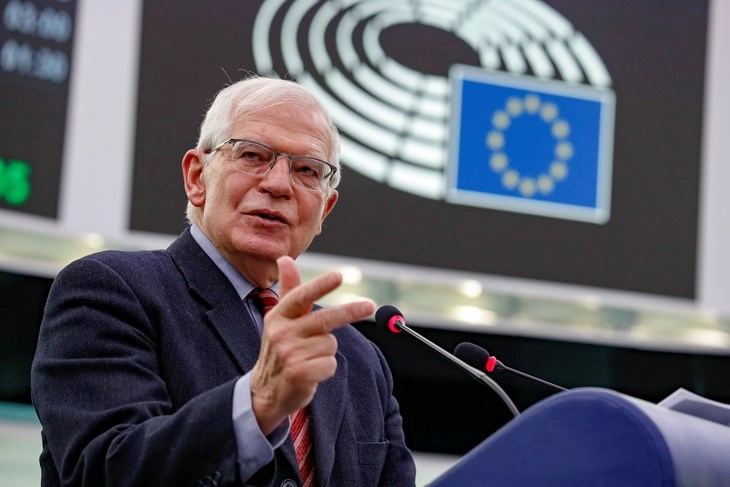EU must prioritize more military aid for Ukraine, says top diplomat

Luxembourg, 11 April 2022 (dpa/MIA) - More military aid to Ukraine in the face of a Russian assault in the country's east should be the European Union's priority rather than fresh sanctions, EU foreign policy chief Josep Borrell said on Monday.
An escalation in Ukraine's separatist Donbass region "will happen with or without sanctions," Borrell said in a press conference in Luxembourg after an EU foreign ministers' meeting.
Cutting gas imports from Russia is "not going to stop the Russian army waging war ... it's aid, it's defence that really counts," he said.
EU foreign ministers were meeting for talks on the bloc's next steps in the Ukraine war, including new sanctions to target Russian oil imports and a decision to send a further €500 million ($544 million) in military aid.
Borrell said the third package of military aid had yet to be adopted as it required agreement from the EU member states' national parliaments as well as the European legislature.
No decision had been made for "procedural" reasons, Borrell said.
Two previous packages of EU military aid to Ukraine, worth €500m each, were announced in February and March respectively. It was a historic first for the bloc to arm a non-EU member state under attack.
EU foreign ministers also discussed plans to ban Russian oil imports from the bloc. Imports of oil from Russia in 2021 cost the EU four times more than gas, Borrell said, adding this must end quickly.
Borrell said replacing oil was easier than replacing gas, but acknowledged the difficulties this poses to different EU member states.
Ahead of the meeting, German Foreign Minister Annalena Baerbock defended Berlin's commitment to phase out Russian energy imports, but said the EU needs a "joint coordinated plan to be able to completely phase out fossil fuels."
Germany, which is heavily dependent on Russian gas, has come under criticism for advocating a slower phase-out of Russian energy than other EU member states.
"It's easy for some members states that are not using Russian gas to say that they are ready to not use Russian gas, but for others, which are heavily dependent, it's not so easy," Borrell said.
There are no plans to make the phase-out of Russian energy imports binding, he added, stressing the importance of unity within the EU on sanction decisions.
The bloc's top diplomat also slammed Russian claims that Western sanctions were responsible for an increased risk of food scarcity, saying that Russian bombs in Ukraine were responsible for food shortages.
Borrell also repeated the EU's commitment to hold Russia accountable for alleged war crimes in Ukraine.
He announced that EU officials from a civilian advisory mission in Ukraine were to help prosecutors from the International Criminal Court (ICC) in their investigation.
Also on Monday, the European Commission presented questionnaires for EU membership to Georgia and Moldova, an important step in the process that forms the basis for entry talks for both countries.







